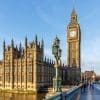October 2020
The pension advice landscape can be daunting but with a map and a guide the journey can be rewarding.
At Suttons Independent Financial Advisers, we have a wealth of experience guiding people through the peaks and perils that are typically encountered in pension territory.
Our aim, in this article, is to guide you on a route that leads to the right retirement destination for you.
So, if you want to explore more, let’s take a stroll through a typical journey from pension planning to retirement.
Your pension plans – where are you now?
We all start our retirement journeys with different starting points, attitudes to risk, personal assets and time horizons.
Because your journey is unique, we’ll work with you to discover your needs and map out the right route to your ultimate retirement.
As life expectancy continues to creep up you will probably have concerns about how you will manage financially in your retirement.
The traditional UK state pension continues to evolve and pension retirement ages may change in the future. In addition to changes in retirement ages there could also be changes to how much you receive for your state pension a.
With these unknowns it is worth taking some time to undertake some retirement planning to identify whether you will have enough money to meet your retirement needs and the best pension plan for you.
Independent financial advice can be a great help in mapping a pathway to the financial future you seek.
Wherever you are on your journey – from taking out a first-time pension, consolidating an existing pension, researching how to obtain income from a pension plan (an annuity) or considering drawing down income – we’ll be your guide.
Your financial future – where would you like to be in retirement?
Pension investments rely on compounding so the earlier you start saving the longer your money has to grow.
As a first step on your journey we will discuss your aspirations and develop some pension calculations based on your future goals.
So that we can tailor a journey we’ll start by asking you a few questions, such as:
Your personal circumstances
- What is your age?
- Are you single, with a partner or married?
Your employment situation
- Are you employed or self-employed?
- What is your annual salary or income (pre-tax)?
- Will your employer / company will be contributing towards your pension?
Your financial situation
- Given your current household budget how much can you make in pension contributions taking into account any current debt payments, household bills and lifestyle?
- Would you like to invest a lump sum, make regular monthly contributions or a mix of the two?
- Do you have any existing pension plans in place?
- Do you need help to trace old pensions that you can’t track down?
- Do you have other assets or income streams (buy to let, business investments, property, ISAs or saving plans)?
Your investment plans
- What is your attitude to investment risk given your age and retirement plans?
Your future plans
- When would you like to retire?
- How much income would like in your retirement?
- Do you plan to work part-time or work during your retirement?
- In the future will you be looking for cash lump sums (income drawdown), a steady regular income (annuity), a mix of the two or the whole amount as a lump sum?
- Would you like to leave an inheritance?
- Who would you like to support during your retirement (e.g. partner, children, parents)?
- Would you like the income to be inflation proof?
Your ongoing support
- How often would you like to review your financial advice?
- Do you require ongoing income and tax planning advice?
This is a two-way process and you will probably have your own questions for us, such as:
- Is there a rule-of-thumb for pension savings as a percentage of my income?
- How do I calculate my pension tax relief calculations based on my current earnings (as a basic-rate, higher-rate or top-rate tax payer)?
- How do I calculate the tax associated with paying in a lump sum into my retirement pot?
- What are my annual contribution limits to my pension?
- How do I track my pension value and its growth?
- Is there a lifetime limit on the size of my retirement savings before I have to pay a tax charge?
- What are the benefits of pensions verses savings, property, ISAs and investments?
Such questions will help structure your personal retirement plan and provide a basis for projecting what level of contributions are required to reach your retirement destination.
Your pension options – which way is best?
Having identified your starting point, current situation and where you are heading, we will then turn attention to the best pension plan to get you there.
There are many routes to reach the end of your journey, such as a workplace pension, private pension, self-invested personal pension or a mix of other investments that may be right your needs.
When it comes to organising a new pension, there are broadly two different types of schemes that we tend to encounter.
We’ll define them here as money purchase and final salary schemes:
1. Money purchase pension schemes
These personal pension schemes involve you saving money into a pension plan, that money is invested and when the plan has run its term the final pot can be used to ‘draw down’ income and / or lump sums directly from the pension pot or used to purchase an annuity (a guaranteed regular income for the rest of your life).
These schemes may be administered through a workplace or taken as an individual policy.
Workplace schemes tend to operate with a limited number of pre-packaged investment options that you can choose between. Private schemes for individuals tend to have a wider diversity of investment options:
1.1 Workplace pension
Under the Government’s automatic enrolment rules employers are now required to offer a pension scheme to employees and contribute on their behalf (age and lower earning limits apply). With employee schemes employer contributions start at 3% (from 6 April 2019) and total minimum contributions must be at least 8% (as a combined employer and employee contribution).
A key factor in this drive to encourage personal pensions is that it is an ‘opt out’ rather than an ‘opt in’ scheme. Whilst you may be giving up some money from your salary in the short term you have the benefit of ‘free money’ from additional employer contributions and the added effect of this money compounding over the long term.
Unlike simple saving you could also benefit from tax relief on your contributions as money is contributed to the fund.
Similarly, ‘salary sacrifice’ may be another option that is relevant to you and consists of allocating an amount of your pre-tax monthly earnings to put towards your pension contributions.
Often an employer will work with a third-party provider such as Aviva, Royal London, Aegon or Legal & General to provide this type of group scheme for their workforce. Employees usually then have the opportunity to choose from a small portfolio of investment (and risk) options that best suits their life stage and needs.
1.2 Private pension plan
If you are not in a workplace scheme you may want to find the best private pension scheme to suit your needs.
Whilst some of these individual schemes are similar in design to those in the workplace schemes described above the key difference is that you do not usually benefit from extra employer contributions.
However, for example, if you are self-employed there may be tax efficient ways of contributing to such a scheme from your company and you may want to discuss tax relief calculations for the self-employed with us.
1.3 Self-Invested Personal Pension (SIPP)
SIPPs operate like private personal pensions but offer a more diverse portfolio of options and greater control over your investment portfolio.
Independent advice is useful to identify the choice of providers in the market, their investment options, investment risk profiles, management fees and ongoing charges.
2. Final salary pension schemes
Final salary schemes (sometimes called company pension schemes, defined benefit pension schemes or final salary schemes) have been in decline in the private sector in recent years.
There are many models but usually employees receive some percentage of their final salary or defined benefit based on length of service or similar qualifying criteria.
Often the firm is responsible for management and growth of the scheme but in some circumstances, employees are required to contribute.
Generally, the private sector is moving to workplace pensions with final salary type schemes mainly operating with publicly funded departments such as the civil service, armed forces, police, teachers and NHS.
Existing pension plans
If you have an existing scheme, we can assist with pension tracing to find the details of those lost, forgotten or unclaimed pension funds.
Once found, you may then choose to transfer and consolidate these funds. We’ll use our experience to discuss these existing pension plans with you and whether it will be beneficial for you to consolidate your pensions into a single arrangement or not. Sometimes these transfers can be complex, carry risk or may not be suitable for your particular circumstances.
Your pension plan – how will you get there?
The pathway to building your pension pot can be complicated but, in simple terms, pensions are just a type of savings account that allow you to save for the future in a very tax efficient way.
As we have seen, growing your fund over time usually involves the right choice of investment company, choosing from a portfolio of different investment options, examining potential returns and considering associated risks. The companies providing these schemes usually offer options to change the profile of the investment portfolio over time so it is common to regularly revisit how the money is invested.
In this final stage we look at decisions about what to do with your final pension pot and how to prepare for transition to retirement.
Here we’ll focus on three common components to prepare for retirement. You could draw down a lump sum (or multiple sums) from your pension fund, exchange the cash in the fund for a lifetime income (annuity) or a mix of the two. All decisions can carry tax implications and we can help develop scenarios based on different drawdown or annuity calculations.
You may also want to discuss other tax planning implications such as deferring pension payments, semi-retirement, working part time during retirement or receiving other income streams alongside your retirement savings.
What is drawdown?
Pension drawdown allows you to retain control of the money you have saved into your pension plan and you draw down your tax free lump sum and income directly from the pot as and when you need it. There may be various reason why you may want to choose the drawdown option, such as continuing to work or paying off a mortgage balance, whilst keeping some money invested for future growth.
Apart from exceptional circumstances you can’t usually access your funds until 55 years of age. After this age you can choose to draw money from your pension plan or leave it untouched until you need to draw the benefits. When you draw from the pension 25% of the pot can be drawn as a tax free lump sum and withdrawals from the remaining 75% of the pot are subject to income tax. Withdrawals from a drawdown are completely flexible which means you are able to draw any amount you wish as regular monthly withdrawals or ad-hoc lump sums and you can vary
However, it should be noted that drawing too much from your pension could result in high rates of income tax being charged on your income or worse – running out of money and outliving your pension and high rates of income tax charges. It is highly recommended you seek professional advice when considering how you will use your pension savings to provide your income in retirement, safe withdrawal limits and how cashing in a pension may impact you.
What are annuities?
Annuities are another option for funding your retirement.
These products are sold by insurance companies and involve exchanging your pension savings with the insurance provider in return for an income over a fixed period of time. The time periods broadly divide between lifetime policies or fixed period policies (typically 5 – 10 years). There are multiple types of annuities from basic to more complex investment linked options.
Lifetime annuities also come with rules on what happens to the investment when you die and if the fund will continue to pay a spouse or nominated beneficiary. When a fixed term annuity policy expires there may be sum remaining in the fund at the end of the period and this could be used to purchase another income product or taken as cash.
It is important to note that the benefits you receive from an annuity can depend on lifestyle factors (such as age or health) and if the scheme is basic or investment-linked.
As income from annuities is taxed as normal income you may be a need to consider tax planning advice in relation to this and any other income streams you receive.
Whether it is looking for the best annuity plan for you, calculating the potential income from an annuity or buying an annuity then we will be happy to help.
We have covered quite a lot of complicated ground and this does not include the many twists and turns that can happen on life’s journey, such as:
- Is there a widow’s pension associated with this scheme?
- How does my savings effect inheritance tax planning?
- What if I have to retire early or because of ill health?
- What happens in the case of divorce?
- What happens to my funds or my annuity if I die?
We believe good financial advice is also a commitment to establishing a long-term relationship with you and being there to answer your questions along your journey.
Taking action on your retirement plans
If you require independent pension advice then the team at Suttons Financial Advisers will be happy to help guide you on your route to retirement.
As outlined above your personal adviser will be happy to discuss your pension journey, including:
- Your current situation
- Your retirement aspirations
- Your options to get there
- Your transition to retirement
- Taking action to future financial freedom and a happy retirement
Suttons Independent Financial Advisers are a truly independent firm of finances advisers and have access to the “whole of market”. This means that we have no affiliation to a particular provider and are here to provide you with the best pension, tailored to your personal needs.
In addition, we can assist you with all your wider financial planning needs including investment advice, life insurance, income protection, critical illness cover, will writing and inheritance tax planning.
Your next steps: what can you expect when you make an enquiry about pensions with Suttons Independent Financial Advisers
Our goal is to build and develop a deep and meaningful relationship with you and to be with you for the long term.
We pride ourselves in providing excellent customer service and when you make an enquiry with us your personal adviser will:
- Respond to you within 24 hours and provide a named contact who will support you from enquiry through to completion
- Provide a truly personal service and work with you at times that suit your busy lifestyle
- Research the whole of market and tailor our advice and planning to suit your specific needs
- Provide ongoing after care to ensure that you remain on the most competitive deal based on your personal circumstances
Finally, it is important to note that this content should not be taken as financial advice. It is for information purposes only.
As advisers, it is our role to provide unbiased advice and help you understand what the implications will be should you choose to go with any of the above arrangements. If you require independent financial advice on your pensions and planning for your retirement the team at Suttons will be happy to help you.
Contact us on 0161 969 1703 or email info@oursocialteam.uk to arrange an initial appointment by telephone or Zoom
This article was written by Andrew Gowland at Suttons Independent Financial Advisors.
This content is for information and inspiration purposes only. It should not be taken as financial advice or investment advice. To receive tailored, regulated advice regarding your investments and financial goals, please consult an independent financial adviser here at Suttons IFA in Sale, Manchester or wider Cheshire area.
Published: October 2020
Suttons IFA is authorised and regulated by the Financial Conduct Authority, FCA number 455848
Registered in England, No. 5837639
Registered Office: Trinity House, 114 Northenden Road, Sale, Cheshire, M33 3HD
The guidance contained in this website is subject to the UK regulatory regime and is therefore targeted at consumers over 18 based in the UK.
The Financial Ombudsman Service (FOS) is an agency for arbitrating on unresolved complaints between regulated firms and their clients. Full details of the FOS can be found on its website at www.financial-ombudsman.org.uk





